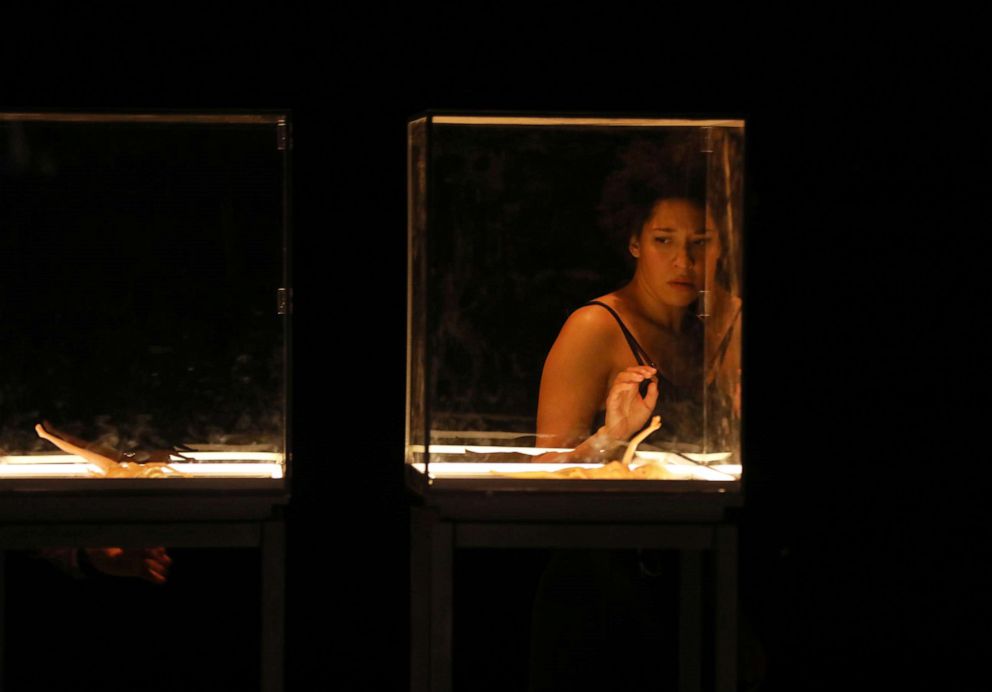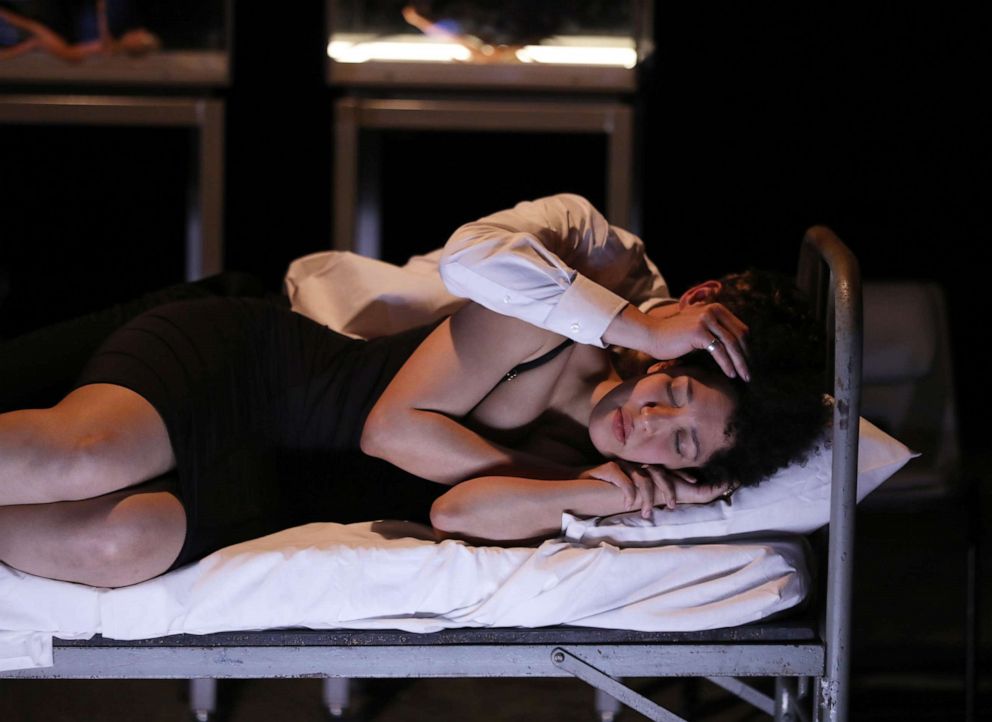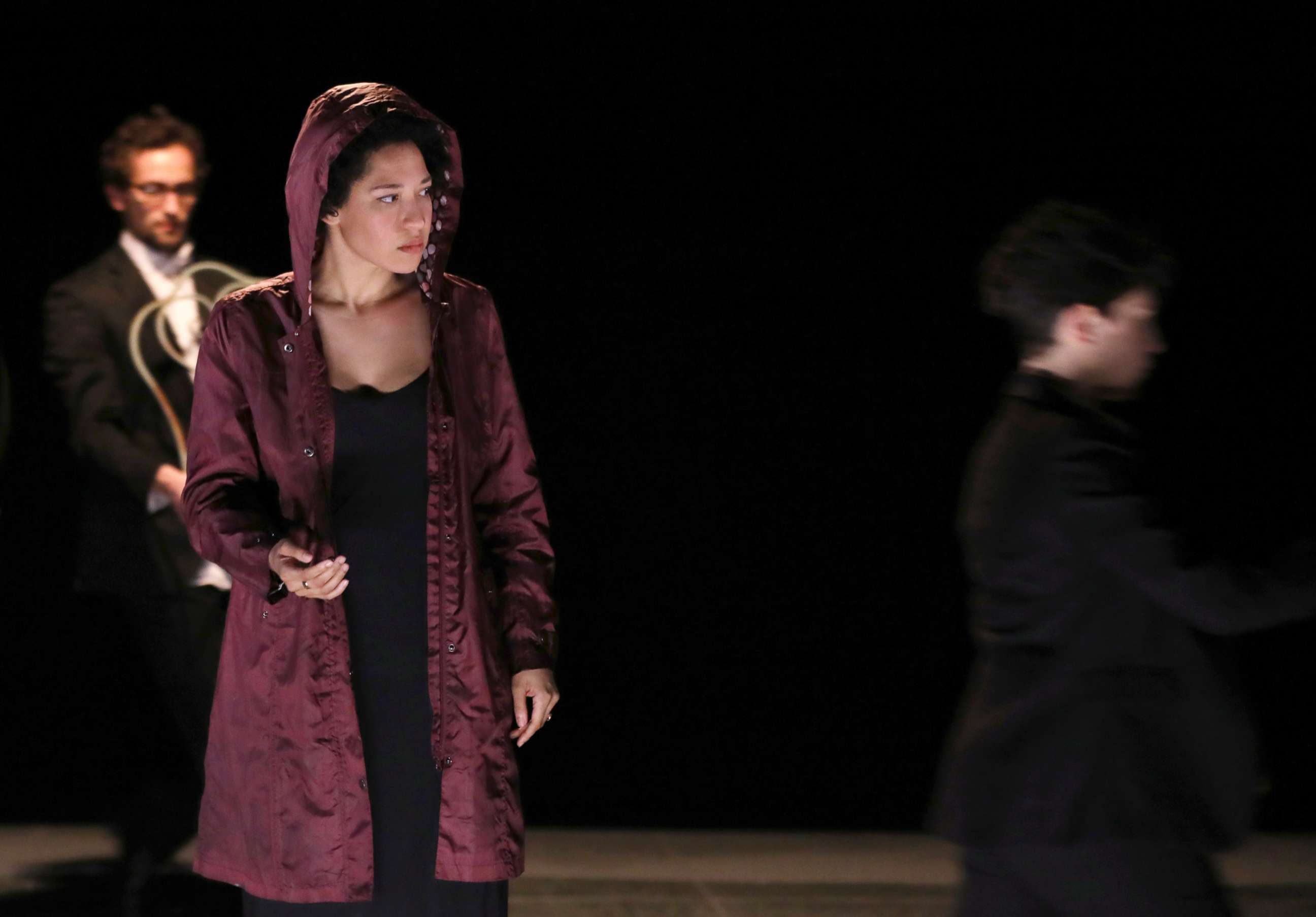The Syrian refugee crisis hits the stage with 'Zauberland'
Julia Bullock stars in the work, which is coming to the U.S. this week.
As conflict continues in Syria, stretching a decade on and turning more people into fleeing refugees, theater stages are attempting to reflect on it.
Last year, Bavarian State Opera's youth program put on a performance written for refugees and migrants and sung by them, too.
This fall, as migrant rescue ships were blocked by new Italian laws, Sicily saw the premiere of an opera about refugees' journey across the Mediterranean with a libretto (script) by novelist Colm Toibin.
And on Tuesday, "Zauberland," a new work directed by English director Katie Mitchell mixing Romantic 19th century music by Robert Schumann with new songs by Belgian composer Bernard Foccroulle, brings another refugee story to the stage, this time in New York as part of Lincoln Center's White Light Festival.

"Zauberland" -- "Magic Land" -- tells the story of a Syrian woman forced to leave her home who eventually settled in Germany and became an opera singer. But she dreams in abstract flashbacks of life in Aleppo and the path to her new surroundings. This dreamworld is the "Magic Land" of the title.
But you wouldn't know the story distinctly by reading the words of the piece. The Schumann music is "Dichterliebe," a song cycle about fairy tales and dreams and love that maybe doesn't end quite so happily ever after.
The new music, meanwhile, is set to poetry written for the work by Martin Crimp that's similarly abstract and flowery (literally, sometimes), filled with flashes of police at borders, "bomb fall - winter snow - a love song," and learning German. The only indication the woman is Syrian comes near the end of the poems, when al-Madina Souq, a market in Aleppo, is mentioned.
"It's really dealing with the subject of trauma, the fractured reality that trauma induces, and also the fractured reality that dreams induce and how those two things are intertwined," Julia Bullock, an American singer performing the role, which is the only singing one in the work, told ABC News.

Bullock, who is quickly rising as a socially conscious curator-performer, was involved in the creation of the work and has been performing it in Europe, going through Germany, France and the U.K. This week's performances in New York will be its New York premiere.
"It just holds attention and holds people in a state of tension that is never resolved," Bullock told ABC News. "There's no real catharsis in this work either, and that's one thing that makes actually performing the piece a little exhausting, besides just the task and being onstage for an hour and a half without a break."
The creators say they're not telling any one story, but a kind of amalgam, one that also serves to put a face to the anonymous crowd of the refugee crisis.
"Regardless of race or gender or anything, it's a human story," Dan Ayling, who served as assistant director, told ABC News. "I hope people take away most that this could be anybody, this could be any of us. It doesn't matter where we're from, and actually we should be questioning why we are doing these things and forcing people to have to take life-threatening journeys like this and split up families and destroy the very beautiful things that we hold dear -- our lives and our family and our children, our loved ones."

Bullock, who is a woman of color, admitted she "definitely had some feelings of hesitation" coming to a work about Syrian refugees written by two white men and directed by a white woman, especially as she "would not in any way call myself an authority in the Syrian crisis."
That's in part why she hopes to encourage presenters to include talk-backs and invite the Syrian community to performances and discussions.
Despite her initial hesitation, after working on the piece and performing it, she said, "I do still feel really convinced that what we're attempting to do is worthwhile and meaningful and for that I'm excited to bring that and share it with as many audiences as possible."
"There is no full relief and no resolve for this individual and for the subject, because it is an ongoing discussion," she said. "The idea of 'Zauberland,' this magic land that legitimately does not exist, and wanting to seek out this space of ease and light and freedom, it's like trying to find these little hints of hope and light throughout the work."




